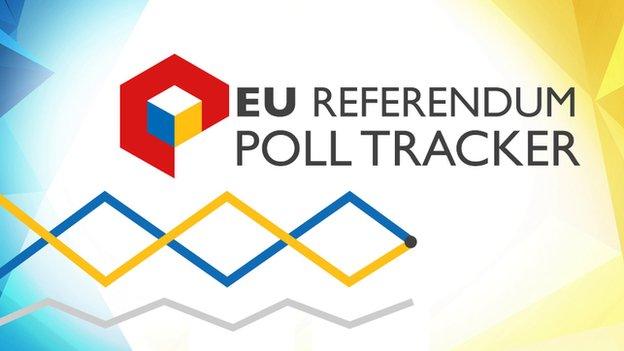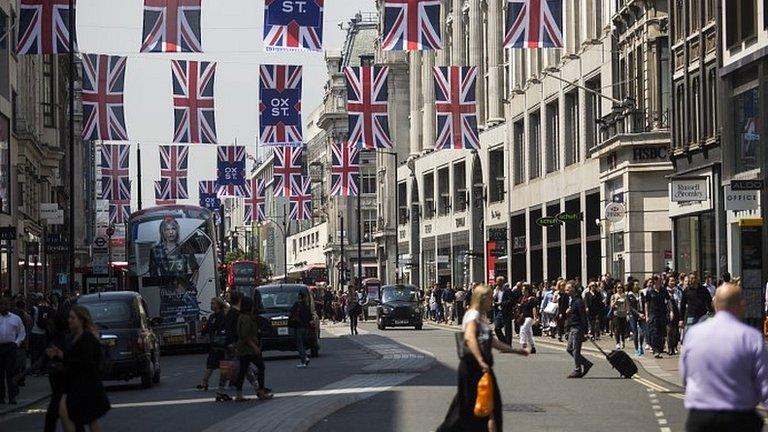Vote Leave wants to protect EU grants if UK exits
- Published
- comments

Vote Leave said farming subsidies could be protected if the UK quits the EU
Ministers campaigning to leave the European Union say recipients of EU funding would get the same money if the UK votes to leave.
EU funding projects for areas including farming, science, and culture would be continued until 2020, they said.
Priti Patel said government would have "options and choices" after Brexit with "more than enough money" to go around.
But Remain campaigners said leaving the EU would "wreck Britain's economy" and trigger public spending cuts.
BBC political correspondent Ben Wright said Vote Leave's open letter, signed by ex-London mayor Boris Johnson and ministers including Michael Gove, Chris Grayling and Priti Patel, sounded like "a pledge of a government in waiting".
Vote Leave has no power to make public spending promises - but is trying to reassure recipients of EU money their funding would be safe, he added.
The UK votes on whether to remain in the EU or to leave on 23 June.
In other developments:
Labour leader Jeremy Corbyn is to issue a call to the "whole Labour movement" to campaign to keep the UK in the EU, warning jobs and workers' rights could be threatened by a Leave vote
Leaders of some of the country's biggest trade unions have signed a letter saying they are worried leaving the EU will be "a disaster for working people"
The Leave campaign has accused EU officials of spending taxpayers' money on "outrageous and excessive" expenses
The Sun newspaper has backed a vote to leave, urging its readers to "set ourselves free from dictatorial Brussels". A Stronger In source said this "surprises absolutely no-one who has even glanced at the paper recently".
The ministers' letter claims that as an EU member, the UK is liable for billions of pounds in tax refunds for big businesses, saying savings could also be made through taxing offshore companies if it votes to leave.
"It is therefore clear that there is more than enough money to ensure that those who now get funding from the EU - including universities, scientists, family farmers, regional funds, cultural organisations and others - will continue to do so while also ensuring that we save money that can be spent on our priorities," it adds.



The letter also said the "official bill" for the UK's EU membership was over £350m a week.
Vote Leave's use of the £350m figure has been criticised by the UK Statistics Authority and the Institute for Fiscal Studies as "potentially misleading", as it does not include the UK's rebate - a deduction on the UK's overall contribution negotiated by Margaret Thatcher's government in the 1980s.
But in the letter, also signed by Julian Brazier, James Duddridge, George Eustice, Penny Mordaunt, Dominic Raab, Iain Duncan Smith, Desmond Swayne, Theresa Villiers, and John Whittingdale, Vote Leave said the UK had no control of the money and "could not count" on the rebate.
It has previously called for an extra £100m a week to be spent on the NHS if the UK leaves.
Ms Patel, who is an employment minister, denied that Vote Leave was making a series of unfunded promises, telling the BBC that the cash injection for the NHS and a cut in VAT on domestic fuel were its only two firm commitments of where money could go after Brexit.
"We are saying very clearly when we take back control of the money we spend to the European Union, the government of the day will have options and choices about how they choose to spend that money," she told Radio 4's Today.
However, she also suggested action could be taken to relieve pressure on school places and she questioned "why any government" would want to reduce support for "immensely important" parts of British society, such as universities, science base and the farming industry.
"We know that there would be more than enough money to ensure that those who currently get that funding from the European Union, that money would still exist and it could still go there to those priorities."

What are the polls saying about which way the UK will vote on 23 June?
Britain Stronger in Europe dismissed the analysis and said the Leave campaign had made 24 spending commitments totalling over £113bn.
Alan Johnson, head of Labour In, said it would only take a 0.6% reduction in economic output after a vote to leave to "eradicate the £8bn that is sent to the European Union and distributed through farming subsidies".
"It is fantasy economics," he told Today. "That money does not exist."
Former chancellor Alistair Darling said "just about every economic expert" had said leaving the EU would "wreck" the UK economy.
He added: "The Leave campaign have had to abandon their key spending pledge after using misleading figures and have been caught pledging their claimed saving 10 times over."
The Leave campaign has also accused EU officials of spending taxpayers' money on "outrageous and excessive" expenses.
Taking examples from a website detailing expenditure by the European Commission, it claimed an "exorbitant" amount of money went on "jollies", including visits to luxury hotels and resorts, restaurants and private jets.
The European Commission said many of the claims were inaccurate. Officials almost always used economy class, it said, and private jets were only hired when other transport was not available.
- Published14 June 2016
